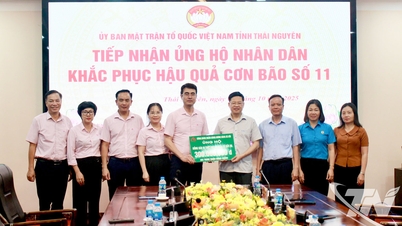In an increasingly competitive labor market, employers always prioritize candidates with flexible skills. Here are 8 skills that Gen Z (those born between 1997 and 2012) need to master before graduating:
Effective communication
Employers see communication skills as one of the biggest gaps in new graduates. A lack of this skill can undermine teamwork, impact customer interactions, and limit leadership potential. The 2024 Skills Landscape report also identifies communication as a core competency for employability.
Meanwhile, graduate students often perform better in relationship building, emotional control, and understanding of career requirements. In professional environments, writing concisely, clearly, and speaking confidently are not only predictors of success, but are also skills that are regularly tested in interviews and candidate assessment centers.
Critical thinking and problem solving
Employers expect graduates to be able to analyze ambiguous problems and propose workable solutions. Problem-based learning (PBL) and other forms of active learning have been shown to significantly improve these skills.
Recent higher education research has shown that PBL has a positive impact on students’ critical thinking and practical problem-solving abilities. In fact, critical thinking can be developed through case studies, projects, and PBL, and students who can express logical arguments are more likely to take on strategic positions.
It is recommended that students take at least one PBL course or case study, and focus on developing problem-framing skills: identifying existing information, assumptions to be tested, possible options, and next steps.
Digital skills and understanding of artificial intelligence
Employers today expect graduates to not only be proficient in popular productivity tools, but also be able to analyze data and work effectively with artificial intelligence (AI). However, several recent large-scale surveys show a significant digital skills gap among new graduates.
The 2025 study “The Impact of Digital Skills on Employability” confirms that digital skills are increasingly playing a key role in improving career opportunities, with information and data literacy and digital content creation being considered as two core pillars.
Today, basic skills such as programming, data analysis, spreadsheet proficiency, and especially the ability to critically evaluate AI outputs have become minimum requirements, no longer an added advantage. Students are encouraged to take short online courses (MOOCs) on data, such as Excel or basic knowledge of pandas, and try their hand at introductory exercises on prompt engineering to practice their ability to evaluate AI results.
Team collaboration skills both in person and online
In the modern world, most jobs require collaboration. However, many employers say that new graduates often lack experience working in distributed teams and implementing projects.
Experience in cross-functional teams such as taking on project roles, participating in project management frameworks or completing team deliverables is a clear demonstration of a willingness to collaborate in a real-world work environment. Students are encouraged to actively participate in club, group or group projects to build trust and develop the habit of holding short meetings to update progress.
Emotional intelligence and adaptability
Emotional Intelligence (EI) is considered one of the important predictors of career adaptability, confidence in decision making, and long-term work performance. Meta-analyses show that EI has a moderate but significant relationship with career success.
Skills such as self-awareness, emotional control and stress tolerance help graduates learn faster, handle feedback effectively and remain flexible in a constantly changing job market.
Creativity and entrepreneurial thinking
The ability to generate and develop ideas is highly valued in all fields, from start-ups to large corporations. Many intervention programs aimed at promoting creative thinking have shown remarkable effectiveness in improving creative thinking and problem-solving skills.
The ability to look at problems from a new perspective and build prototypes is an advantage that helps candidates stand out in positions related to product, strategy and innovation.
Time management and self-regulation
Success in school and work depends on the ability to plan, avoid procrastination, and meet deadlines. Research shows that self-regulated learning and reduced procrastination improve goal achievement.
Employers value candidates who plan, prioritize, and meet deadlines, especially during internships and early career stages. Students are advised to adopt a simple time management process: prioritize weekly, incorporate daily Pomodoro cycles, and keep a diary comparing planned and actual time for two weeks to improve their ability to align.
Work experience and professionalism
Internships, Work-Integrated Learning, and demonstrable career skills are powerful factors in employability. Many employers today value practical experience over mere academic qualifications.

Essential skills for Gen Z to succeed in the job market (Photo: The times of India).
Short-term internships, projects, and professional networking can double the chances of transitioning from internship to full-time employment. Therefore, students are encouraged to proactively seek at least one paid internship or project, and to build a brief portfolio on GitHub, Behance, or LinkedIn to demonstrate real-world work and results.
Source: https://dantri.com.vn/giao-duc/8-ky-nang-ma-gen-z-can-nam-vung-truoc-khi-ra-truong-20250913075218793.htm





![[Photo] Unique Phu Gia horse hat weaving craft](https://vphoto.vietnam.vn/thumb/1200x675/vietnam/resource/IMAGE/2025/10/10/1760084018320_ndo_br_01-jpg.webp)
![[Photo] Ho Chi Minh City is brilliant with flags and flowers on the eve of the 1st Party Congress, term 2025-2030](https://vphoto.vietnam.vn/thumb/1200x675/vietnam/resource/IMAGE/2025/10/10/1760102923219_ndo_br_thiet-ke-chua-co-ten-43-png.webp)
![[Photo] Opening of the World Cultural Festival in Hanoi](https://vphoto.vietnam.vn/thumb/1200x675/vietnam/resource/IMAGE/2025/10/10/1760113426728_ndo_br_lehoi-khaimac-jpg.webp)













![[Video] Ho Chi Minh City: Many subjects still lack teachers](https://vphoto.vietnam.vn/thumb/402x226/vietnam/resource/IMAGE/2025/10/10/1760108638254_gv-png.webp)

















































































Comment (0)